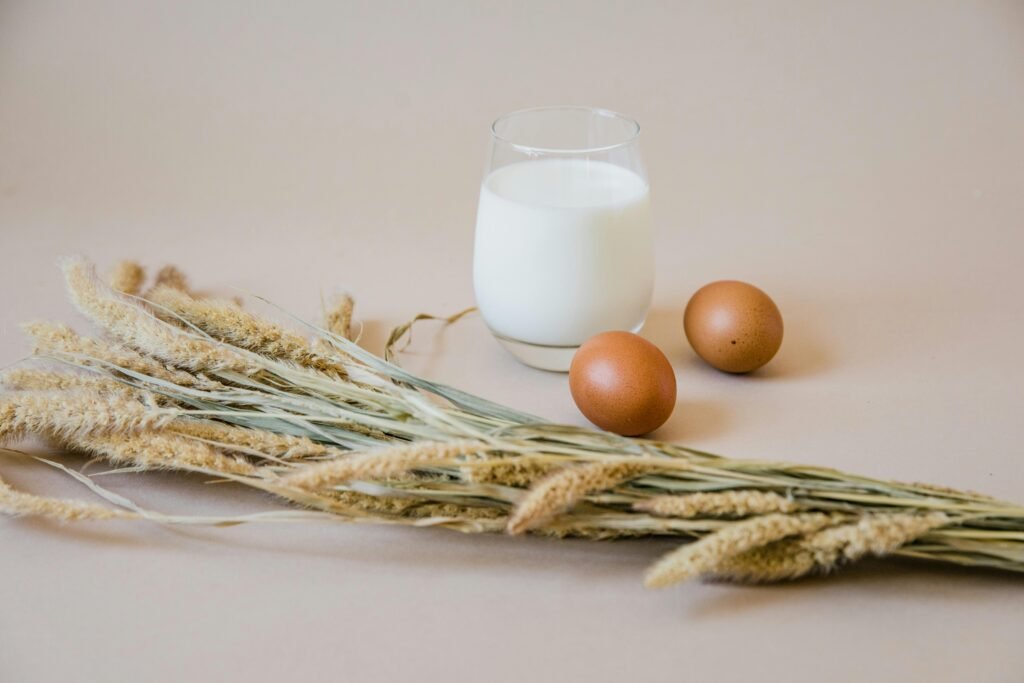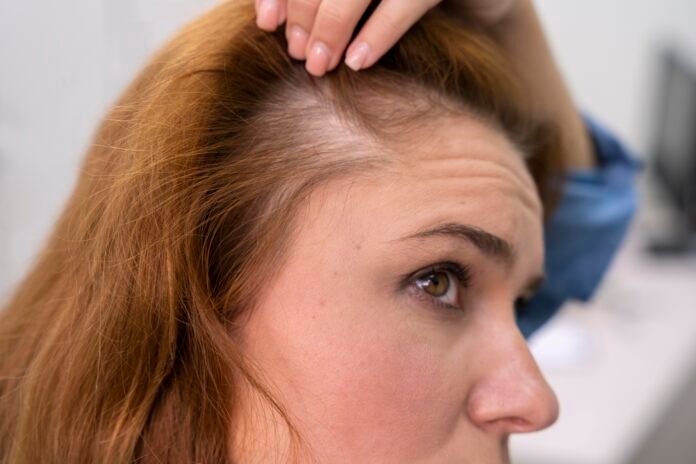Hair loss is a common concern affecting millions of people around the world. While genetics, stress, and medical conditions often play a role, one overlooked yet significant cause is vitamin deficiency. Your body needs essential nutrients to maintain healthy hair growth, and when these are lacking, it can lead to thinning hair or even bald patches.
In this blog post, we’ll explore the key vitamins whose deficiencies can lead to hair loss, the symptoms to look out for, and how to support healthy hair through nutrition.
1. Vitamin D
Role in Hair Health:
Vitamin D is crucial for stimulating hair follicles and supporting the hair growth cycle. It also plays a role in immune function, which is linked to some types of hair loss like alopecia areata.

Signs of Deficiency:
- Hair thinning or shedding
- Fatigue
- Depression or mood changes
- Bone pain
Sources:
Sunlight exposure, fatty fish (like salmon), fortified dairy products, and supplements.
2. Vitamin B7 (Biotin)
Role in Hair Health:
Biotin is a B vitamin often associated with hair growth and strength. It supports keratin production, the protein that makes up hair.

Signs of Deficiency:
- Hair thinning or breakage
- Skin rashes
- Brittle nails
- Fatigue or neurological symptoms in severe cases
Sources:
Eggs, nuts, seeds, sweet potatoes, and whole grains.
3. Vitamin B12
Role in Hair Health:
Vitamin B12 helps produce red blood cells, which carry oxygen to the scalp and hair follicles. A deficiency can disrupt this process, leading to hair loss.

Signs of Deficiency:
- Hair shedding
- Fatigue or weakness
- Pale skin
- Numbness or tingling
Sources:
Meat, dairy, eggs, and fortified cereals (especially important for vegetarians and vegans).
4. Vitamin A
Role in Hair Health:
Vitamin A helps the scalp produce sebum, a natural oil that keeps hair moisturized. However, too much or too little can both contribute to hair problems.

Signs of Deficiency:
- Dry, brittle hair
- Dry skin
- Vision problems at night
Sources:
Carrots, sweet potatoes, spinach, and dairy products. Use supplements with caution—excessive intake can cause hair loss.
5. Vitamin E
Role in Hair Health:
Vitamin E is a powerful antioxidant that supports scalp health and improves blood circulation to hair follicles.

Signs of Deficiency:
- Hair thinning
- Dry or damaged skin
- Muscle weakness
Sources:
Nuts, seeds, spinach, and vegetable oils.
Tips for Preventing Hair Loss Due to Vitamin Deficiency
- Eat a balanced diet of fruits, vegetables, whole grains, and lean proteins.
- Get regular blood tests to check for deficiencies, especially if you’re experiencing hair loss.
- Consider supplements after consulting with a healthcare provider, particularly if you’re on a restrictive diet or have absorption issues.
- Manage stress, which can exacerbate both hair loss and nutrient depletion.
Final Thoughts
While hair loss can have multiple causes, vitamin deficiencies are among the most treatable. By identifying and correcting these nutritional gaps, many see noticeable improvements in hair growth and overall scalp health. If you’re concerned about persistent hair loss, consult a healthcare professional for personalized advice and testing.
